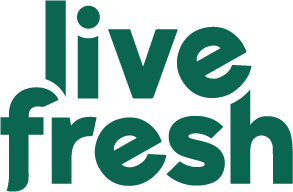Ernährungstrend oder behütete Tradition? Was steckt hinter den Begriffen Autophagie und Fasten? Aus Aufzeichnungen wissen wir, dass Fasten bereits seit zig Jahrtausenden ein fester Bestandteil ritueller und religiöser Bräuche ist. Auch wenn zur damaligen Zeit Autophagie kein Thema war, versprach man sich durch den Verzicht eine heilende Wirkung – für den Körper und für den Geist.
Welche Prozesse genau dahinterstecken und worauf Du beim Autophagie-Fasten achten musst, erfährst Du hier.
Highlights
- Autophagie kann beim Abnehmen helfen: Durch das Kaloriendefizit beim Fasten werden Fettreserven angegriffen und Energie aus ihnen gewonnen – das kann den Gewichtsverlust fördern, ist aber individuell unterschiedlich wirksam.
- Autophagie durch Fasten aktiviert die Zellerneuerung: Beim Nahrungsverzicht verwertet der Körper beschädigte Zellbestandteile – ein natürlicher Selbstreinigungsprozess mit potenziell positiven Effekten auf Gesundheit und Wohlbefinden.
- Fasten verläuft in vier Phasen: Vorbereitung, Fasten, Essphase und Übergangsphase – jede Phase hat eine spezifische Funktion zur optimalen Unterstützung von Autophagie und Stoffwechsel.
The process of autophagy: what's behind cell renewal
By and large, the term autophagy describes both a process of Metabolic process as well as a kind of Quality assurance of the Cells. But why is this necessary? Our organism consists of tens of trillions of cells that work continuously. These processes are vital for our survival and together ensure that our body functions. However, there are also process errors here. Our cells know how to help themselves and - like a cell's own recycling station - ensure that damaged and harmful Components transported away, decomposed and reused become. This process is called
We too Cell renewal.
As soon as damaged or harmful cell components gain the upper hand, the body reacts and initiates the process of autophagy. This protective mechanism is used through conscious fasting.

What does autophagy have to do with fasting?
Science is divided on the extent to which conscious intervention in this process can be controlled. However, it can be said that fasting can certainly have positive effects. Due to the lack of nutrients, the body draws its energy from fat reserves, which stimulates processes such as autophagy.
Intermittent fasting: When does autophagy start?
As the name suggests, the focus is on Intermittent fasting about the Divide fasting into different intervals. Various models are used for this, of which the 16:8 method is probably the best known. The numbers describe the rhythm in which you can eat and how long you can go without food. With the 16:8 method, the Food intake limited to 8 hours, while fasting for the other 16 hours.
When autophagy starts during intermittent fasting depends on the method chosen. Each body also reacts differently to the calorie deficit, which is why it is not possible to give a general answer as to when the process begins. However, it is assumed that autophagy stimulated after 14-28 hours will.

The fasting phase: how to boost autophagy
The whole process of fasting can be broken down into four phases subdivide:
Preparation phase:
As with all forms of fasting, it is important to be prepared. In the preparation phase, you give your body time, get used to the fasting periodby reducing the amount of food and favoring easily digestible foods. What to look out for when fasting with a juice cleanse should pay attention to, can be found in the linked blog article.
Fasting phase:
Fasting itself can also be divided into several steps. At the beginning, the body draws its energy from carbohydrates, which are stored as glycogen in the liver and muscles. The body then begins to do so, convert your own fats into energy sources. This process is Ketogenesis mentioned. In this context, the Autophagy stimulated.
Eating phase:
The eating phase becomes relevant when you Intermittent fasting you are practicing. In other words, if you plan to follow several fasting phases in a row. In order to positive effects for a long timea method is chosen during which fasting and food intake alternate. In addition to the 16:8 method, other forms such as 5:2 and 1:1 are also available for intermittent fasting. Choose a rhythm for intermittent fasting that suits your lifestyle and everyday life.
Transition phase:
Similar to the preparation phase, this is what it's all about now, slowly get the body used to solid food again. Proceed as cautiously as you did at the beginning. Soups and Light food such as steamed vegetables are ideal foods to replenish glycogen stores without overtaxing the body.
These are the advantages and disadvantages of autophagy fasting:
Advantages:
- Intestines and body are relieved.
- The process of Cell renewal is stimulated and accelerated.
- You develop a better understanding of Your
Feeling of hunger and satiety.
Disadvantages:
- A lack of food can lead to hormonal
Changes lead. - Although there are certain signs such as increased thirst
despite frequent fluid intake can be determined without medical measurements.
It is difficult to conclude how far autophagy has already progressed. - It can lead to side effects such as Headache
come.
To summarize the advantages and disadvantages of autophagy, it can be said that the Perception of success or failure very subjective is. Anyone who eats an unhealthy and unbalanced diet all year round will not be able to correct this by fasting for a few days. For people who spend a lot of time Nutrition or are about to change their lifestyle, fasting can be a positive push to reset their eating habits.

How long should autophagy be maintained?
The current state of science assumes that the Autophagy after 14 to 48 hours is stimulated. In this context, however, it is important to mention that every body reacts differently to fasting, which means that no exact time can be specified.
The same applies to the question of when autophagy reaches its peak. The scientific findings on this issue differ so widely that no time can be determined. Even if the findings on this issue are not (yet) satisfactory, it clearly shows how different the human organism is.
Can you lose weight through autophagy?
To lose weight, you need to be in a calorie deficit. So that's what it's all about, take in less energy from food than you consume. However, actual weight loss depends on many factors (body size, lifestyle, weight, genetics, etc.). As you are in a deficit when fasting, which stimulates autophagy, this can lead to a reduction in body weight.
If losing weight is a top priority for you, you will find our Food cures a selection of foods that will support you. In addition, the topic of Shilajit may be of interest to you as a supplementary measure.
Frequently asked questions about autophagy and fasting
How do you activate autophagy?
The process of Cell renewal is constantly taking place automatically in the body. Fasting is intended to actively stimulate this process on a large scale. However, the exact time at which autophagy begins varies from body to body. It can happen after just a few hours, but also after 48 hours.
What stops autophagy?
As the Lack of food puts the body into economy and repair mode and thus stimulates autophagy, food intake also ends this process. As a result, damaged cells only repair themselves when the "garbage can" of cell components is full and there is a need for action.
Can autophagy be accelerated?
A good Preparation and follow-up helps to prepare your body for the fasting period.
to adjust. Not only reducerst you thereby the Risk of possible Side effectsbut actively contribute to increasing the likelihood that you will benefit from the advantages.
Are autophagy and ketosis the same thing?
Ketogenesis is a process that occurs when there is a lack of food and provides important energy sources through the production of ketosis. Ketosis is therefore a consequence of the process of autophagy and fasting.
Das könnte dich auch interessieren

Dr. Ulrike Fischer
Nutritionist
Developed on a scientific basis by Dr. Ulrike Fischer, who holds a doctorate in nutritional science.
Ernährungstrend oder behütete Tradition? Was steckt hinter den Begriffen Autophagie und Fasten? Aus Aufzeichnungen wissen wir, dass Fasten bereits seit zig Jahrtausenden ein fester Bestandteil ritueller und religiöser Bräuche ist. Auch wenn zur damaligen Zeit Autophagie kein Thema war, versprach man sich durch den Verzicht eine heilende Wirkung – für den Körper und für den Geist.
Welche Prozesse genau dahinterstecken und worauf Du beim Autophagie-Fasten achten musst, erfährst Du hier.
Highlights
- Autophagie kann beim Abnehmen helfen: Durch das Kaloriendefizit beim Fasten werden Fettreserven angegriffen und Energie aus ihnen gewonnen – das kann den Gewichtsverlust fördern, ist aber individuell unterschiedlich wirksam.
- Autophagie durch Fasten aktiviert die Zellerneuerung: Beim Nahrungsverzicht verwertet der Körper beschädigte Zellbestandteile – ein natürlicher Selbstreinigungsprozess mit potenziell positiven Effekten auf Gesundheit und Wohlbefinden.
- Fasten verläuft in vier Phasen: Vorbereitung, Fasten, Essphase und Übergangsphase – jede Phase hat eine spezifische Funktion zur optimalen Unterstützung von Autophagie und Stoffwechsel.
Inhalt








